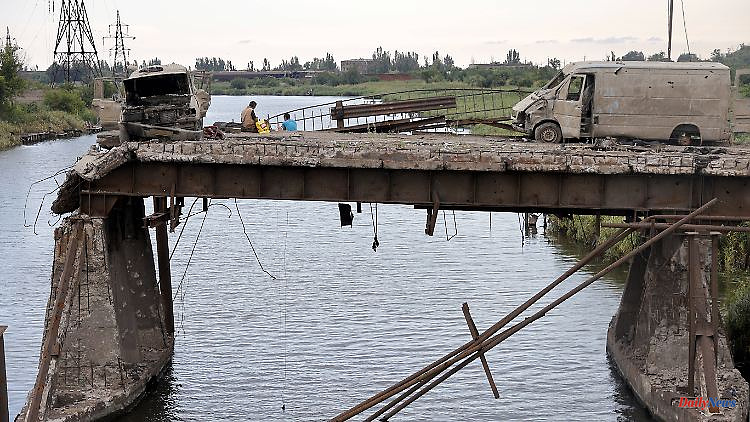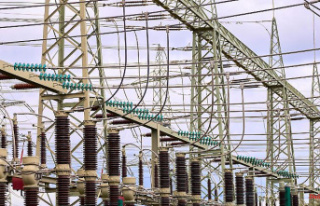On the battlefield, things are looking good for Ukraine. Financially not. The economy is ailing, tax revenues have plummeted, foreign exchange reserves are running low, promised financial aid is flowing only sparsely. The central bank has to print money to plug holes.
Militarily, Ukraine has gone on the offensive in recent months. But while the army is advancing confident of victory on the battlefields in the east and south of the country, the country is in danger of losing the war economically. The infrastructure in large parts of the country is badly damaged, millions of Ukrainians have fled, economic activity has collapsed and with it tax revenues. At the same time, government spending increased as a result of the war. The government in Kyiv can only cover 40 percent of its budget with its tax revenues.
With international aid falling far short of promises, Ukraine's central bank (NBU) has switched to financing a large part of the state budget directly by practically printing new hryvnia. However, this can only finance in the short term. On the one hand, inflation, which has already risen to 23 percent, is likely to increase further – in the worst case to hyperinflation of 1000 percent or more. On the other hand, the state and the economy also urgently need foreign currency to pay for important imports ranging from weapons to energy and basic foodstuffs. But the central bank's foreign exchange reserves are dwindling. In just a few months, there could be nothing left of the NBU's more than $30 billion in reserves.
At the beginning of the war, the government was still trying to continue servicing its national debt in order to be able to borrow more money on the financial market. In the spring, she raised several hundred million dollars by issuing war bonds. In the summer, however, Ukraine - in agreement with international investors - suspended its debt service for two years due to a lack of foreign currency. This initially eliminates a financial burden, but the country is now cut off from the capital market.
The necessary repairs to the damaged infrastructure are used to finance the current budget. A World Bank report estimates war damage at more than $90 billion. Reconstruction, Ukrainian government officials emphasize, must not begin after the war, as is currently being discussed internationally as part of the idea of a "Marshall Plan" for Ukraine. A significant part of the damage to the gas and electricity supply and health facilities must be "repaired before winter so that people can survive," Prime Minister Denis Shmyhal told the Bloomberg financial service, adding: "I mean that literally."
The hope that the Western Allies will save Ukraine from financial collapse with sufficient financial injections seems anything but certain. Although donors have promised a total of around 30 billion dollars in aid for the current year alone, only a little more than half has flowed so far. The EU in particular has so far fallen far short of its announcements of more than nine billion euros. A large part of the aid disbursed so far is also loans that will burden Ukraine after the war with a mountain of debt that a severely weakened country can hardly bear.
In contrast, aid programs from the International Monetary Fund (IMF) and the World Bank, with which the Ukrainian government is currently negotiating, appear more promising. The IMF initially wants to grant Kyiv a 1.3 billion emergency loan. However, the talks about further aid of up to 20 billion euros are difficult. Ukraine cannot meet the usual conditions for such an aid program. The responsible Ukrainian negotiator reported to the Reuters news agency about "heated debates" with representatives of the fund.
Ukrainian economist Maria Repko warns that there is a lack of understanding of the urgency in the international talks on financial aid. "The war is not won yet," she writes in an article for Foreign Policy. "And Ukraine needs support now".












